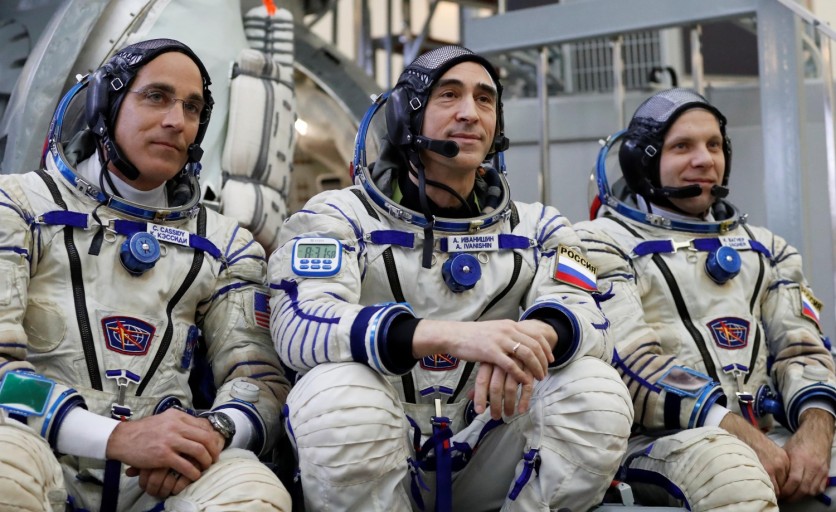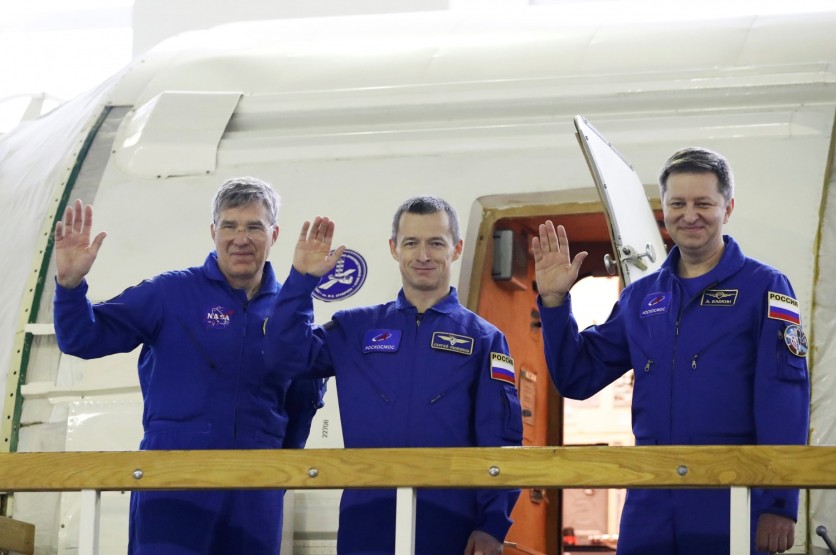
While delays are not anything new in the space industry, firms in the estimated $400 billion business are bracing for work from home policies that grind production and development to a halt.

The National Aeronautics and Space Administration (NASA), Boeing, Lockheed Martin, and Blue Origin started to restrict commercial business travels, reschedule events and move a few people to far off set-ups.
But building complicated spacecraft, growing software programs with high-powered computer systems, and working in studies teams will probably be out of the question if the coronavirus continues to worsen. Johns Hopkins University said the U.S. has at least 3,244 confirmed cases. The CDC, on Sunday, urged organizers to cancel in-person events with 50 humans or more in attendance at some point in the country.
Two NASA personnel tested positive so far
The agency's Marshall Center in Alabama said on Friday that a NASA employee tested positive for coronavirus. Marshall is now in a "Stage 3" response status. The company was far requiring personnel telework and said that "access to the center can be restrained to venture-vital employees only."
In a statement, Marshall director Jody Singer said more guidance would follow for those who work in labs or other facilities requiring similar technical fix equipment.
Marshall joins NASA's Ames center in Silicon Valley in a "Stage 3" status. Ames had an employee tested positive for coronavirus a week ago. However, NASA stated at the time it believed "exposure on the center has been limited."
Additionally, the privately-run visitor complex at NASA's Kennedy Space Center in Florida said it will likely be closed Mar. 16 until further notice, with no traffic allowed.
Two of the space industry's most important meetings suffered from preventive measures from coronavirus. The Satellite 2020 conference in Washington, D.C., was cut brief early last week and had lighter than expected attendance. The 36th Space Symposium in Colorado Springs was also postponed indefinitely. Both meetings usually draw tens of heaps of attendees.
The months beforehand have a full roster of deliberate launches, a lot of which require NASA or U.S. Military personnel to transport ahead. The Department of Defense halted even home travels for staff by May 11, also though exceptions can be granted for a "challenge-crucial" tour. NASA spokesperson Bettina Inclán told CNBC on Friday that the employer is "proactively monitoring" the scenario and has "plans in the area to address problems as they arise."
"Currently, the coronavirus has not significantly affected NASA's operations, and work maintains on track, including preparations for the approaching launches of the Mars Perseverance rover assignment and NASA's Commercial Crew flight test (SpaceX's Demo2) to the International Space Station, and creation of our James Webb Space Telescope targeted for launch next year," Inclán said in a statement.
SpaceX's first astronaut flight coming up
CNBC said the SpaceX Demo-2 assignment is only some weeks away, with the agency's president saying earlier this week that its plans to release in May. It will be the first time the organization flies astronauts, with NASA astronauts traveling ISS for at least some days.
ALSO READ : NASA: Sending More Humans on Moon by 2024 Now Possible With This Newly-Built Mega-Rocket
Inclán said they'll make adjustments as needed if the coronavirus scenario maintains.
SpaceX seems to be moving forward, with its operations mostly unchanged so far. CEO Elon Musk wrote in a tweet last week that "the coronavirus panic is dumb" and allegedly advised employees in an email on Friday that "the threat of loss of life from C19 is *vastly* less than the threat of demise from driving your car home."
However, Musk reportedly did tell employees that if they're "feeling ill" that "it's always better to live home and take care with yourself."
SpaceX employees within the organization's headquarters in Hawthorne, California, are continuing to work inside the meantime. It is uncertain how the agency's satellite manufacturing facility in Redmond, Washington - just outdoor of Seattle, one of the worst coronavirus hot spots inside the U.S. - has been affected. SpaceX did now not respond to CNBC's request for comment on measures it's far taking in response to the pandemic.
Blue Origin, the space project of Jeff Bezos, told CNBC it has yet to look an effect to its core operations because of coronavirus but that it had made plans if more good sized adjustments to its enterprise are necessary.
In a statement, Blue Origin vice chairman of communications Linda Mills said they would be imposing self-quarantine actions and allow those who can work from home to be able to do so. The company will also implement social distancing to its workforce and sanitize its facilities, Mills added.
Work on some of the nation's most costly space programs is persevering with for the time being, with NASA and Boeing continuing with to work in Louisiana on the Space Launch System (SLS). In a statement, NASA said pictures on SLS are considered "essential task operations," but the industry is carefully screening the coronavirus situation.
Boeing stated in an announcement that it "no longer made any changes to our operational engineering assist for the International Space Station," with engineers on-site. But the company's Houston facility "is operating in accordance with Boeing's Covid-19 policies," with telecommuting recommended and reduced face-to-face meetings.
ⓒ 2025 TECHTIMES.com All rights reserved. Do not reproduce without permission.




